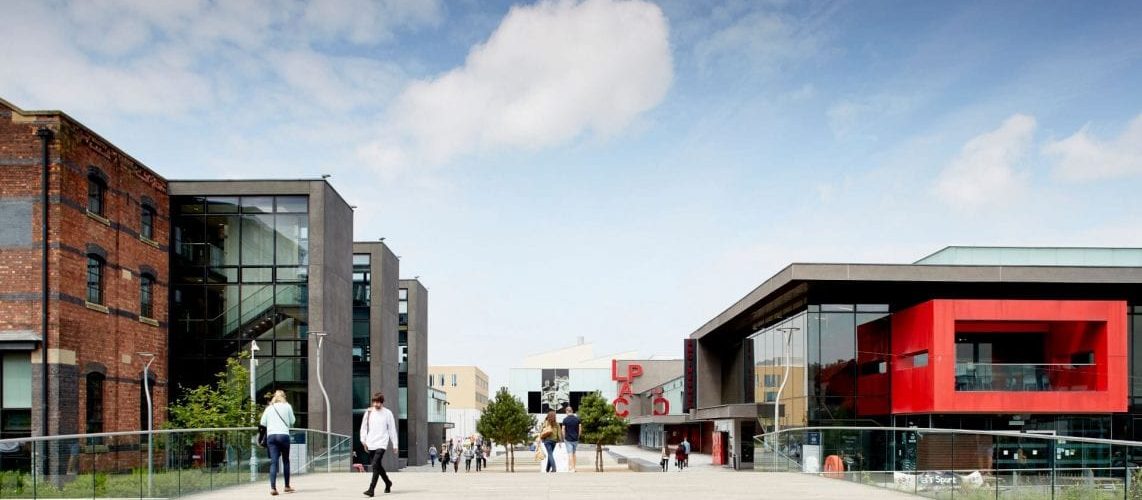The Professional Practice Fellowship programme is a pilot scheme, sponsored by Research Libraries UK and the AHRC, designed to give librarians the time and capacity to carry out significant research projects aligned with their professional interests. My name is Hope Williard and I am one of the fellows for 2022-2023. This blog will share my research journey from start to finish. This is the first of my series of posts about my project.
My project, ‘The Lifelong Researcher: Supporting Doctoral Students’ Development of Digital Literacies‘, will investigate how PhD students in history learn to find and use digital resources in academic libraries. My research will look at the current state of training programmes in digital skills and how these could be improved to support lifelong learning and skills development through the completion of the doctorate and beyond.
In other words (you can tell from the above that I’m still working on my elevator pitch), these are my initial questions:
- What ‘digital skills’ does a doctoral student need to do historical research?
- Where and how are these skills taught?
- What do students think is taught well? What could be taught better? What is missing?
- What do supervisors think is taught well? What could be taught better? What is missing?
- How do the digital skills someone learns during their PhD prepare them for life and work beyond the doctorate?
My project will last eight months, from August 2022 to April 2023, and formally begins on 8 August.

Learning Experiences SO Far
Over the past month, I have been trying to gather the information and tools I need to hit the group running on my research project. This has meant things like:
- attending monthly coffee catch-ups with other fellows whose projects have already begun
- obtaining a new unrestricted work visa
- beginning to gather and read policy reports on bodies that oversee doctoral education, like the UK Council for Graduate Education
- meeting with academic colleagues at my university who supervise and support research to share and get feedback on my initial questions
- setting up an Endnote library and adding books on interviews and survey design–research methods that I will use for the very first time in this project
- speaking with colleagues from my university’s ethics team about the process and timeline of getting approval for questionnaires and semi-structured interviews
- dabbling in LinkedIn Learning training on time management and blogging
This Week’s Learning Experiences
“If you don’t know where you are going, you’ll end up someplace else.” – Yogi Berra
My major task for this week will be to draft a week-by-week project timeline. This might sound counterintuitive: after all, the unexpected is what makes research so rewarding (and frustrating). I am delighted by the prospect that my research questions will change and grow as my project develops. One of the weirdest things about applying for a research grant is that you have to identifying meaningful project outputs–things that will come to exist as a result of your research, despite not knowing the outcomes of said research. It is the ultimate exercise in putting the cart before the horse, except if you do it successfully research funders buy both your cart and your horses. Wild stuff!
The following six carts stand before my hopeful research-horses:
- a report on training programmes for doctoral researchers at the University of Lincoln and twelve peer institutions
- a virtual TeachMeet, bringing together, librarians to discuss experiences of supporting postgraduate researchers
- An article examining history students’ perceptions of their experiences learning to use digital archives
- a one-day virtual colloquium to bring together library colleagues and PhD supervisors to discuss support for research students in history
- An article examining supervisors’ and librarians’ assessment of researchers’ capacities and digital training needs
- a presentation at Lilac: the Information Literacy Conference 2023 (or another large conference)
It’s a lot! And while I don’t know what I’m going to find, I can put myself in the best possible position to share my research by planning what I need to do to make that happen.
Lastly…
I’d love to know–what are the most useful things you’ve done to get ready to start a research project?
Thank you for reading! If you enjoyed this post, please share it on social media or leave a comment below.

Comments are closed.